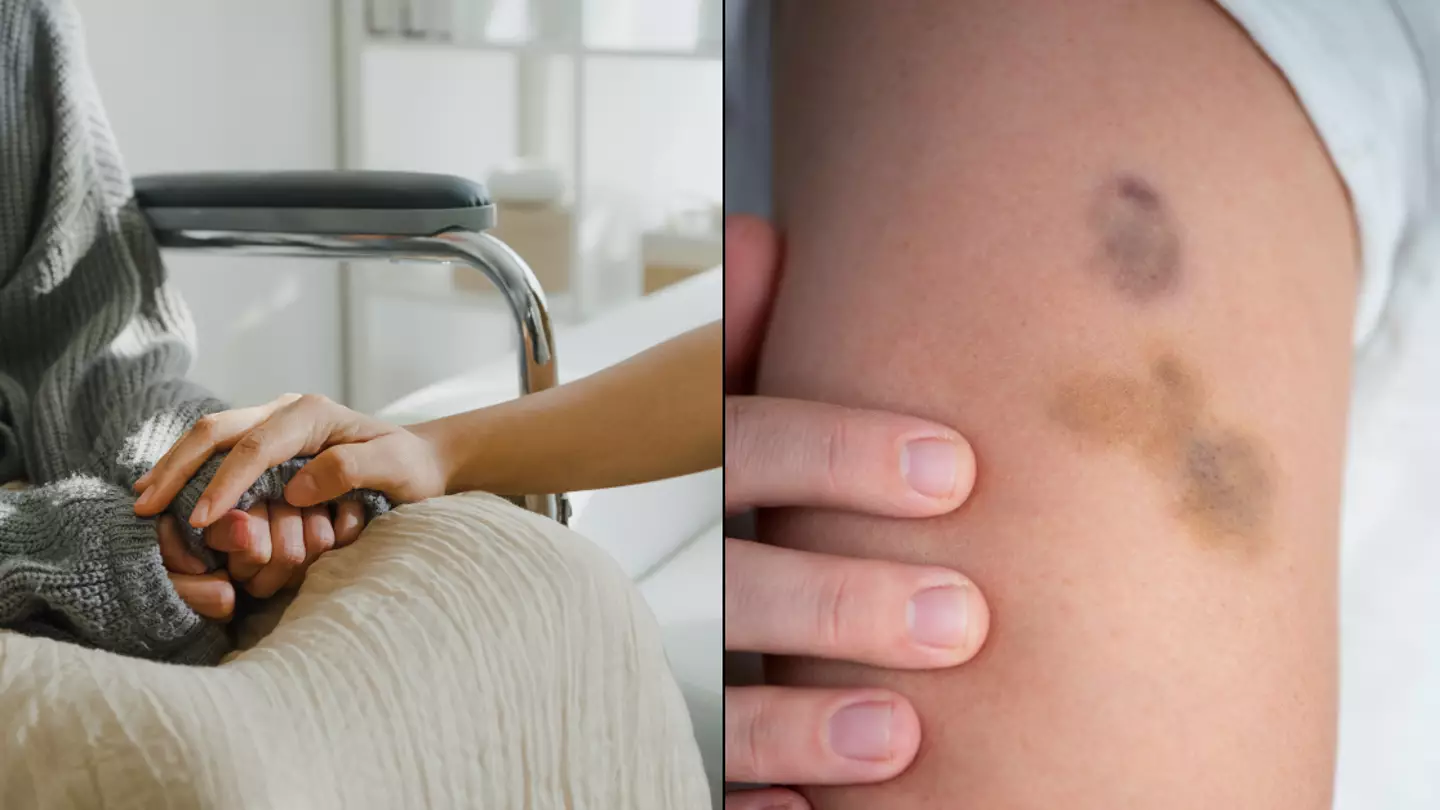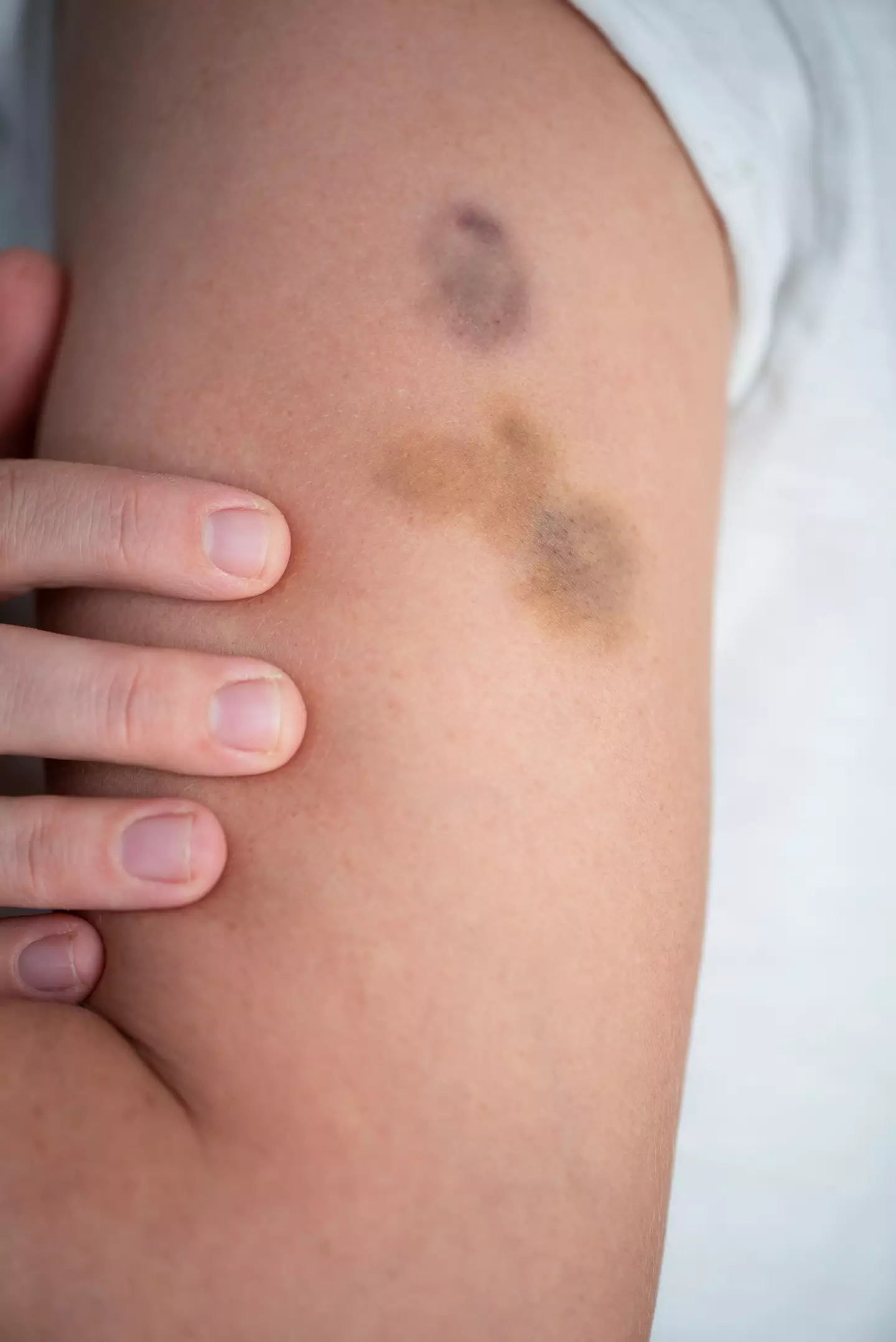
When you're feeling run down or just don't seem 100 percent, it's easy to run to Dr Google and get yourself in a panic over your symptoms before self-diagnosing yourself with a deadly disease.
But in the same breath, it's just as easy for us to brush off warning signs about our health and put our worries to the back of our minds instead of getting a once over from our GP.
It might be something and nothing, but occasionally, you might actually be in need of urgent medical attention.
Since singer Halsey announced that she was 'lucky to be alive' in an Instagram post on Tuesday (4 June) while alluding to the fact she is suffering from lupus and leukaemia, it's given people a nudge to be more observant towards their body.
Advert
In the UK alone, there are more than 9,900 new cases of leukaemia each year, while there is a whopping 62,700 across the pond in the US.

So it's super important to be aware of the symptoms of this blood cancer - even though they may mirror those of non-life threatening illnesses.
But to be on the safe side, make sure you get yourself checked if you experience any of these eight early warning signs.
Dizziness or feeling lightheaded
If you haven't been on the waltzers, the fact you feel dizzy or lightheaded could suggest you might be unwell.
Advert
For those who notice this sensation regularly, it's best to check in with your doctor as it could be a sign that you may be suffering from leukaemia, Blood Cancer UK explain.
As the disease stops your body making healthy red blood cells, this can cause a person to become anaemic and begin to feel tired, unwell, dizzy or lightheaded as well as appearing pale or washed out.
However, it could be something much less sinister, as many common illnesses can have these effects on you.
Frequent infections
If it feels as though your immune system has taken a beating and you are constantly copping coughs and colds that seem impossible to get rid of, you should head to your GP.
Advert
Contrary to popular belief, it isn't normal to be feeling under the weather for weeks and weeks at a time and it could be a sign that something else is going on.
Leukaemia sufferers often experience infections that are 'frequent, severe, or last longer' than usual as the condition can also stop your body making white blood cells - which fight off illnesses - as it should too.
Having less of these floating about inside your skeleton make you more susceptible to sickness, while you may also notice a sore throat and mouth sores cropping up too.

Headaches
Has it been a really long week that warrants a banging headache? Probably, but if they keep coming back to haunt you, you should mention it to a medical professional.
Advert
Although they are usually associated with brain tumours, headaches and visual issues can also be a symptom of leukaemia.
If you have a very high count of white blood cells, this can clog the smallest blood vessels in the brain which will subsequently leave you experiencing a headache.
According to Cancer Research UK, this can also cause issues with your vision and eyes, but this is less common.
Bruising
It seems like a lot of us can't go on a night out without coming home covered in mysterious bruises and looking as though we've done ten rounds with Tyson - but keep an eye on lesions if they keep appearing seemingly without reason.
Advert
If you haven't got your drunken self to blame for the bruises, it could be a symptom of leukaemia.
That's because the blood cancer can affect the cells which help your blood to clot, which are called platelets.
As your body is unable to produce enough of these to plug up bleeding blood vessels, you are more likely to bruise easily and are essentially a lot more delicate than you would usually be.
Blood Cancer UK said you should keep tabs on any red or purple spots or rashes caused by bleeding under the skin which turn up, as well as blood in your poo, heavy periods, and difficulty with speech and movement.

Bleeding
So you already know that your platelets play a very important role in keeping your body ticking over nicely and these little babies are made in our bone marrow.
They help form blood clots to slow or stop us bleeding, while also helping wounds we suffer to heal - so if you are running low on them, you may notice unusual bleeding.
Women might notice excessive amounts during menstruation, but your gums could also point to this too.
Experts explain that if you notice something out of the ordinary, such as bleeding gums when you are brushing your teeth, it could be a sign that you need to get checked out.
Frequent nosebleeds are also another warning sign you should not ignore.
Fever
Feeling all hot and bothered and nearly breaking your thermometer could be a symptom of leukaemia.
As we previously touched on, the fact your body might not be producing enough white blood cells leaves you wide open to infections - and a high temperature is a big indicator of these.
On top of that, you may also experience night sweats, but these will commonly occur alongside other symptoms too.
Macmillan says you should only be alarmed if you are perspiring enough to 'soak through bedclothes and bedding'.
Your body will rise in temperature while battling against the disease, in what is known as an 'inflammatory response'.
So pick up the phone and call your GP rather than just turning the fan on.

Swollen lymph nodes
As we all know by now, our lymph nodes tell us a lot about what's going on inside of our bodies.
If you notice that the ones in your neck, armpit, or groin are swollen, it suggests that you may be suffering with some sort of illness - which may be minor, or could be something severe like leukaemia.
They may feel sore to the touch and become swollen - and if this is the case, you need to get checked out.
It's easy to mistake these for something harmless, but they could be a warning sign of something a lot more sinister such as blood cancer.
Aching joints
You might notice that your joints and bones seem to be playing up and giving you pain if you are suffering from leukaemia, as the cells of this disease build up in the bone marrow
Pain usually flares up at different times of the day, according to medical experts.
People typically complain of feeling the worst discomfort in the long bones which they have in their arms, legs and ribs, while children might start limping or avoiding walking due to the pain.
Additional pain may also be felt below the ribs on the left side of your body, where your liver and spleen are located.
Leukaemia can cause these to swell up, so let your doctor know if you have any bloating, pain, swelling or general discomfort in that area.